What is asset tokenization and its role in business
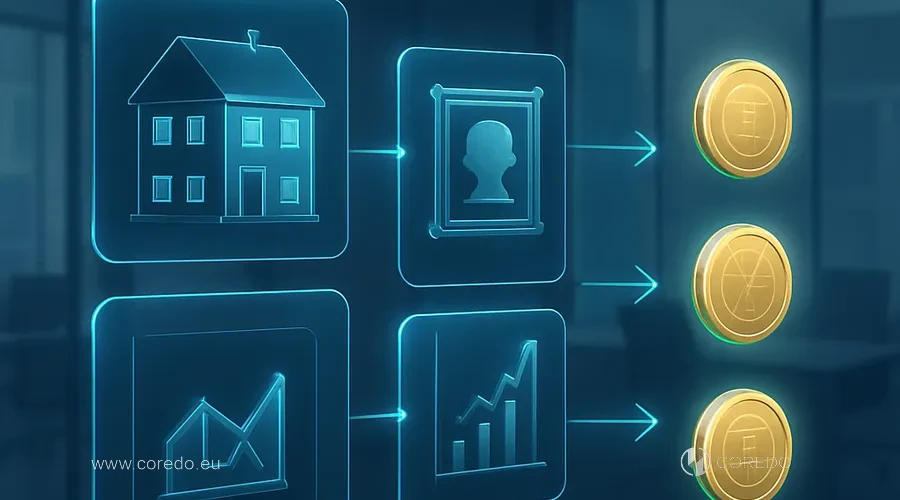
In practice this means that real estate, commodities, debt instruments, private loans or even intellectual property can be represented as digital tokens reflecting ownership shares, entitlement to income or other economic interests.
Legal support for asset tokenization
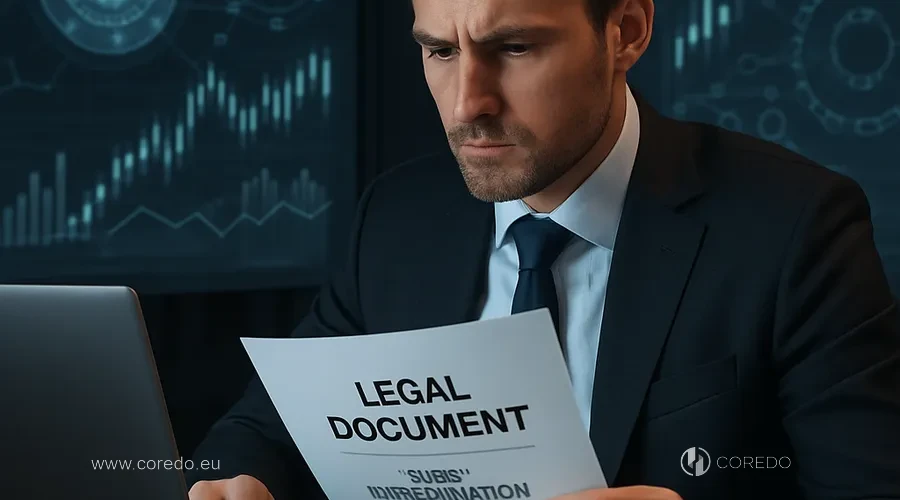
One of the key issues is the regulation of tokens as securities. In the EU and the United Kingdom, tokens that grant the right to income or a share in an asset often fall under the MiFID II directives and the Prospectus Regulation, which requires obtaining licenses and providing disclosures to investors.
In COREDO’s practice special attention is paid to the choice of legal structure — most often an SPV (Special Purpose Vehicle) is used, registered in a jurisdiction with transparent regulation of digital assets. For example, for tokenizing infrastructure projects in Estonia we formed an SPV, which allowed optimal management of investor rights and reduced tax risks.
Multi-jurisdictional company registration for tokenization: another challenge. In Europe, Asia and Africa the requirements for constitutional documents, KYC/AML, disclosure of beneficiaries and licensing differ dramatically. COREDO’s experience shows: successful company registration for asset tokenization is possible only with deep localization of legal and compliance procedures. For example, when launching tokenization of financial instruments in Singapore we integrated local MAS (Monetary Authority of Singapore) requirements and international FATF standards, which ensured rapid licensing and product launch without delays.
AML/KYC and compliance in tokenization: meeting requirements
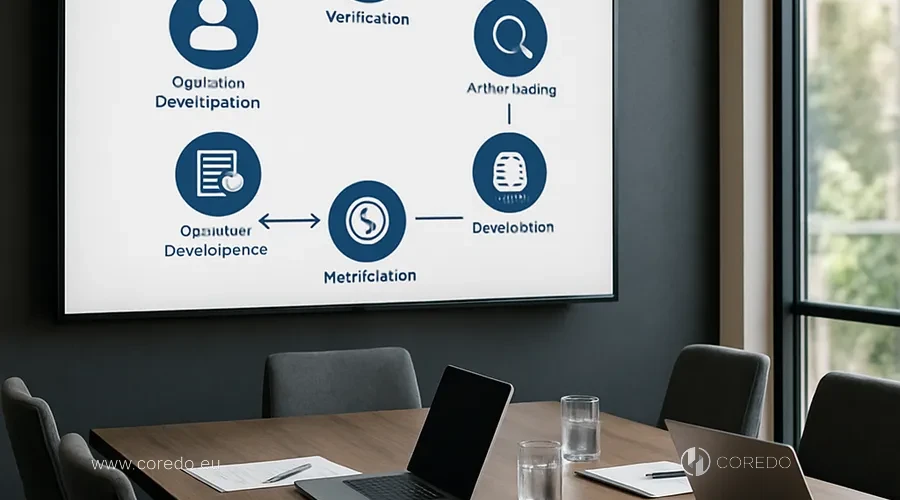
Violation of these requirements leads not only to fines but also to the blocking of operations and loss of market trust. COREDO’s practice confirms: integrating tokenization with AML policies must be implemented at the product architecture level, not as an “add-on” to existing processes.
risk management of compliance: a separate task. In addition to standard client due diligence procedures (CDD, EDD), it is necessary to consider the risks of secondary trading, cross-jurisdictional token movement and interaction with platforms that are not licensed in the EU or the UK. COREDO’s experience shows: to minimize compliance risks and legal barriers in international asset tokenization, it is important to build identification, monitoring and reporting processes that take into account the specifics of each jurisdiction and asset type.
Technologies and platforms for asset tokenization
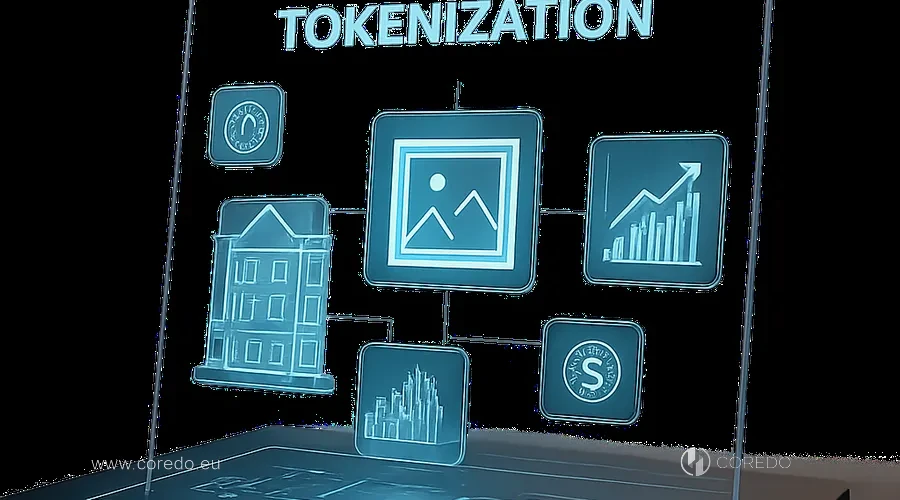
Today the market is dominated by blockchain platforms for tokenization such as Polymath, Securitize, Atomyze, which support token issuance, integration with AML/KYC, management automation and product scalability.
For example, a solution implemented by COREDO for tokenizing private loans on the Securitize platform provided programmable interest distribution and automatic reporting for investors from the EU and Asia.
Blockchain technologies provide not only transparency and protection against fraud, but also the scalability of tokenized products. For projects with global ambitions, it is critically important to choose platforms that support multi-jurisdictional operations, integration with banking systems and the ability to issue tokens that meet the requirements of different regulators.
Moving on to the specifics of regional initiatives, it is important to consider the features of tokenization in various jurisdictions in Europe, Asia and Africa.
Regional tokenization in Europe, Asia and Africa
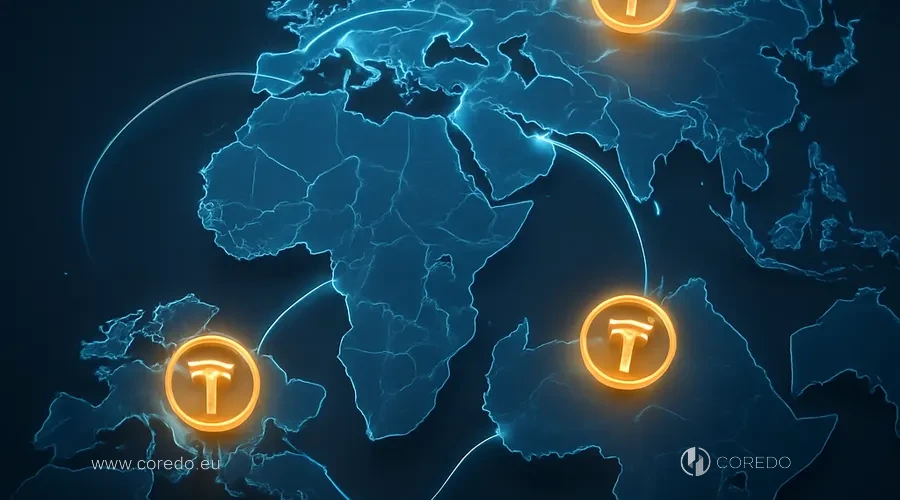
For example, the MiCA directive (Markets in Crypto-Assets) in the EU establishes transparent rules for the issuance and circulation of tokens, which facilitates attracting institutional investment and scaling products.
In Asia and Africa, the legal aspects of tokenization require special attention to local specifics. In Singapore, MAS actively supports innovation, but imposes strict AML requirements/KYC and disclosure. In Dubai, a separate regulator (VARA) operates, which allows the launch of tokenization of infrastructure projects with minimal barriers. COREDO’s experience in supporting real estate tokenization in Dubai showed: success depends on the correct choice of jurisdiction for the SPV and full compliance with local standards.
Regional specifics also affect investment strategies. For example, in Africa tokenization of commodities allows attracting capital to infrastructure projects, and in Asia: creating new financial products based on tokenized assets taking into account the specifics of local markets.
Use cases and scaling of tokenized assets
Tokenization of real estate and commodities are among the most in-demand practical scenarios. In one of COREDO’s projects for a European fund, we implemented tokenization of a commercial real estate portfolio using an SPV in Estonia and issuing tokens on the Securitize platform. This not only increased asset liquidity but also expanded the pool of investors by fractionalizing shares and entering new markets.
Scaling tokenized products requires not only technological but also legal flexibility. Using platforms for token issuance that support multi-jurisdictional operations and integration with banking systems allows you to quickly launch new products and enter markets in Europe, Asia and Africa.
Assessing the ROI from asset tokenization is a key question for any business. In practice, metrics include the speed of capital attraction, reduction of transaction costs, growth of liquidity and transparency. In one of COREDO’s cases for tokenizing inventory in the UK, ROI was over 18% in the first year due to accelerated turnover and reduced audit costs.
These effects become especially noticeable when considering changes in company management and investment strategies.
Impact of tokenization on governance and investments
Tokenization changes not only the capital structure but also approaches to corporate governance. Digital ownership shares and programmable assets enable automation of voting, profit distribution and control over the protection of investors’ rights. In COREDO projects for tokenizing intellectual property, we implemented smart contracts that ensure transparent royalty distribution and protection of authors’ rights.
Raising capital through tokenization is becoming an increasingly popular tool for financing infrastructure projects and innovations. Tokenization of financial instruments (for example, treasury bonds or private loans) allows companies to diversify funding sources and reduce the cost of capital.
The long-term prospects for the RWA market are linked to sustainable financing, integration of tokenization into the digital economy and the emergence of new investment strategies based on global liquidity and transparency.
Conclusions and recommendations for entrepreneurs and executives
- Legal support for tokenization should start with choosing the optimal SPV structure, taking into account multi-jurisdictional registration requirements and a deep analysis of regulatory standards in each country.
- AML services for tokenization and integration with KYC/AML policies should be implemented at the product architecture level, using automated monitoring and auditing tools.
- Company registration for asset tokenization requires considerationand local specifics, disclosure of beneficiaries and obtaining the necessary licenses, from crypto to payment and investment.
- Scaling tokenized assets is possible only when choosing technological platforms that support multi-jurisdictional operations, integration with banking systems and compliance with international standards.
- The ROI of asset tokenization is measured by the speed of capital attraction, cost reduction, growth in liquidity and transparency. It is important to use comprehensive metrics and regularly conduct performance audits.